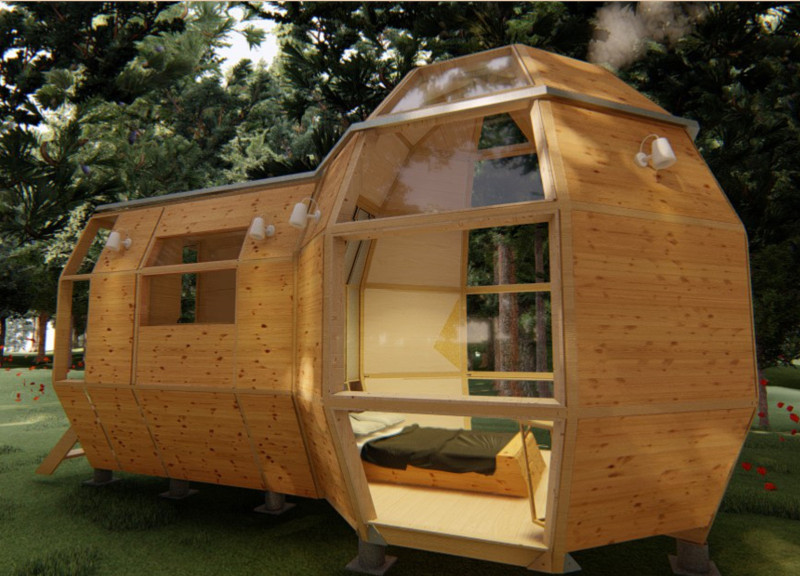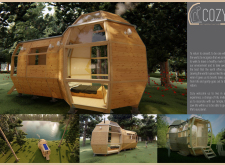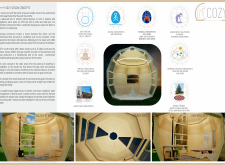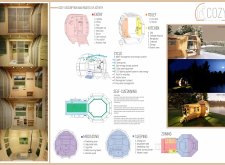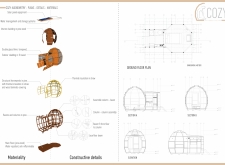5 key facts about this project
At its core, the "Cozy" cabin represents a sanctuary for those seeking solitude and tranquility. Its primary function revolves around meditation, offering spaces conducive to introspection and relaxation. The careful layout features distinct areas dedicated to various activities, including a meditation zone, sleeping quarters, and a small kitchen. This zoning not only enhances the utility of the cabin but also fosters an atmosphere conducive to the purpose of the project. Visitors can seamlessly transition from one function to another while maintaining a sense of peace.
The architectural design employs a unique, rounded form that mimics natural shapes found in the environment. This curvature promotes a flow of energy throughout the space, inviting occupants to experience the cabin as an extension of the landscape rather than a separate entity. Extensive use of windows and transparent surfaces not only maximizes natural light but also frames views that encourage occupants to immerse themselves in the beauty of nature, reinforcing the meditative experience.
Materiality plays a critical role in the design, emphasizing locally sourced and sustainable options. The use of pine and fir wood for structural elements and finishes provides warmth and a tactile connection to the environment. These materials are chosen not only for their aesthetic qualities but for their durability and sustainability. The integration of straw for thermal insulation further demonstrates the project's commitment to environmentally conscious building practices. Additionally, double-glazed glass is utilized to enhance energy efficiency while maintaining visual connectivity with the exterior.
A significant aspect of the "Cozy" project is its approach to sustainability. The cabin incorporates systems to manage resources effectively, such as rainwater collection for water supply and solar panels for energy generation. These features ensure that the cabin remains self-sufficient, reducing its ecological footprint and encouraging occupants to engage in environmentally responsible living. Furthermore, a composting toilet system reflects a thoughtful approach to waste management, aligning with the overall philosophy of the cabin.
The unique design approaches utilized in the "Cozy" cabin reflect broader architectural trends while maintaining a specific focus on personal well-being and connection to nature. By embracing organic forms and sustainable materials, the project provides a model for eco-friendly architecture that prioritizes both functionality and the human experience. The emphasis on natural light, open spaces, and thoughtful zoning creates an inviting atmosphere that supports meditation and self-reflection, ultimately fostering a deeper connection with both self and environment.
As you consider the intricate details and thoughtful design decisions that shape the "Cozy" architectural project, I invite you to explore further by reviewing the architectural plans, sections, and various designs presented in the project documentation. Gaining insights into these elements will enhance your understanding of the comprehensive vision behind this unique cabin, revealing how it stands as a prominent example of sustainable design in contemporary architecture.


